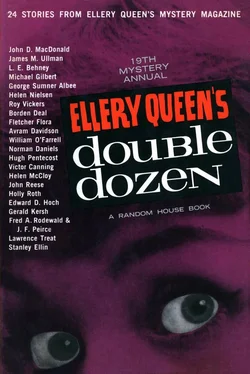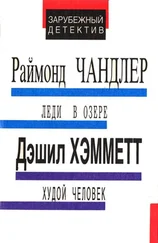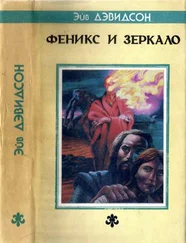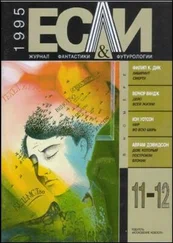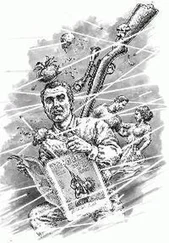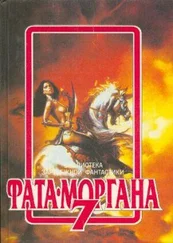The reporter then put the same question to Charley. The answer was almost whispered.
“What did you say?”
Louder, but still low: “I wouldn’t touch it.”
Nor would Charley elaborate. Lew, for once, had nothing to say. He seemed in a reverie.
Charley’s refusal to explain was not allowed to stand. And so, later, he got the reporter off his back by making a short statement:
“My only reason for reporting Lomax was my fear that he was capable of killing more people” — so ran the polished, published version of Charley Rosco’s faltering words. “I did my duty as a citizen, and not for a reward. Lomax’s fate is up to the jury. He will probably be sentenced to death, or at least to life imprisonment. I couldn’t accept any money for that.” He thought that only his mind had repeated the words, blood money; but there they were in the newspaper. It would be blood money.
The account held a further surprise for him. Lewis Livingston, who joined Rosco in reporting the killer’s whereabouts to police, concurred in his coworker’s decision. Somehow, Charley thought he would not want to talk to Lew about it.
Other people wanted to talk to Charley about it, though.
Patrolman Colcott: “Well, I guess you got the right idea. I thought you was trying to beat us out of the money, was all. To tell you the truth, just in confidence, it wasn’t my idea to put in that report. But I got, like, carried away, you know? It was somebody else’s idea. The Commissioner, he really threw the book at us. But I got to admire you for sticking by your principles.”
Jeanette Rosco: “ ‘Oh I was so exitted when I read the nespaper clipings and shoewed them to everybody in Camp and Ant Sussan our cownsiler said your father is not only breave he is ethicle to and I was so prowed.’ ”
Uncle Eddie Aurelius: “Well, Marie, that’s quite a guy you married. But me, I’d think twice before turning that much money down.”
John Rosco: “ ‘Dadd he shut any bulits at you Ples send me a suvenir of the robbery alll the gys say you are rite its blod money.’ ”
And so, finally, Lew.
“I don’t know what got inta me, Charley. I just kept thinking of all the things I could do with the money — I didn’t even think of it as $5,000, just the whole amount. I mean, to get so carried away that I didn’t even think of sharing it!”
“You couldn’t share it with me, Lew. Far as I’m concerned, you can have the whole amount.”
“Ah, no. Ah, no. No blood money for me. I put the whole thing out of my mind. Hey — you know — I was talking to one of my customers, name of Bergdol, I think he must change his tablecloths after every damn meal — half his wash is tablecloths! Well, so he says, Lomax got off with, what was it? $73,000? Besides those other jobs he pulled. So he can afford the best criminal lawyer, Bergdol says, and maybe he can get a hung jury or a, whaddayacallit, a mistrial. After all, it’s been done. But that’s not all: Bergdol says he could do it again, with a big lawyer, even a second trial. Fix the jury, maybe.”
“Well—”
Lew, carried away by Mr. Bergdol’s fancies, swept on. “So if he does it twice, Charley, maybe gets a reversal or one of them legal things, and the government or the D.A. figures, What the hell. How much is this going to cost? So they wait till everybody’s forgot about it and they let him go. Happened before. So — bloong! — there goes your reward. Huh? So I put the whole thing outa my mind.”
But Charley couldn’t put it out of his.
Whatever the sum of money was that Ben Lomax — he had, for one brief fortnight, fifteen years before, been a student at a barber college, which was enough for an imaginative reporter to tag him “Benny the Barber” — had made off with, none of it remained with him. Not one of Mr. Bergdol’s high-flying conceits was realized. Lomax was defended by a court-appointed lawyer, who used no histrionics, no movie or television techniques, baffled no witnesses, found no legal loopholes, demanded no mistrial.
In his summing-up he reminded the jury that although the defendant had been convicted of bank robbery twice before, he had never been accused of violence against any of his victims, and this, the attorney said, lent credence to the defendant’s claim that he had not intended even to fire his gun during the commission of the crime he was now charged with; that it had gone off by accident. Therefore, even if the jury should find the defendant guilty of first degree murder, they would have ample grounds to make a recommendation for mercy.
The jury was out two hours and brought in a verdict of guilty of murder in the first degree. There was no recommendation of mercy.
Lomax said he hoped his case would be a lesson to young people everywhere to “keep clean.” He did not elaborate.
The judge confined his words to the legal formula of the sentence itself.
“We will appeal,” said the condemned man’s lawyer. “Of course we will appeal.”
He did not bother to point out that one appeal was mandatory — and free. After that, the condemned man might appeal, of course, as many times as he could pay for. As he could not pay for any, there was no reason to believe that he would not be executed in the briefest time that the ponderous progress of the law allowed.
“Well, what do you think about it?” everybody — it seemed like everybody — asked Charley. He said that he didn’t want to think about it. But that night he dreamed about it. Once again he saw Ben Lomax, grease-smeared, led to execution; once again Frank Foster lay writhing in his life’s blood.
But this time there was something else: he, the dreamer, was compelled to look at his own hands. Unwillingly, in fear and trembling, he finally looked. His relief at finding them clean of any trace of blood was so great that he awoke.
The local newspaper carried an editorial which briefly reviewed Lomax’s crime, his trial, and its own role in setting up the reward. The editorial went on to say, “That it is entirely proper for such rewards to be offered, goes without saying. Nevertheless, public opinion has not always been kind to those who have accepted them. It was the hope of a reward, not civic consciousness, which brought about the downfall of Jesse James, as cold-blooded a killer and thief who ever lived. It is ironic that the bandit himself has been glorified by those who should know better, while Robert Ford, who shot him, has gone down in popular history as ‘a dirty little coward.’
“No such stigma can be placed on two local men whose prompt, courageous actions resulted in the career of a latter-day Jesse James being brought to an end. Charles Rosco and Lewis Livingston deserve the plaudits of their fellow-citizens. They did what decent men should do, and they staunchly refuse any reward for having done so. What a lesson their brave, selfless conduct should be to those, alas, too many, who are always seeking handouts.”
And the editorial concluded with a denunciation of subsidized medical care for the aged.
Charley’s children (now back from camp with summer’s end) returned from school with shining eyes and flushed cheeks to report that their teachers had read the editorial aloud in class, and that the principal had made it the subject of an address during assembly.
“All right. This is what your mother and I always try to teach you,” Charley said. “You do the right thing because it is the right thing. And if you know that it’s wrong to take money for something, well, you don’t take it, even though you might need it, for instance,” he wound up — somewhat confused, not being used to moralizing. And the two children listened to him, soberly, intently, without wriggling.
Читать дальше
